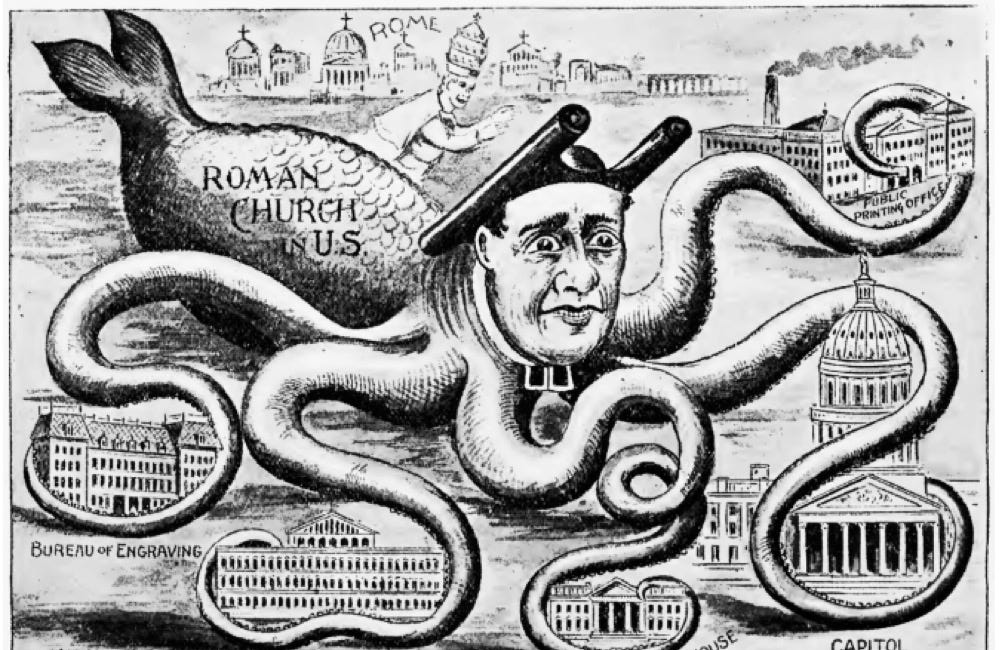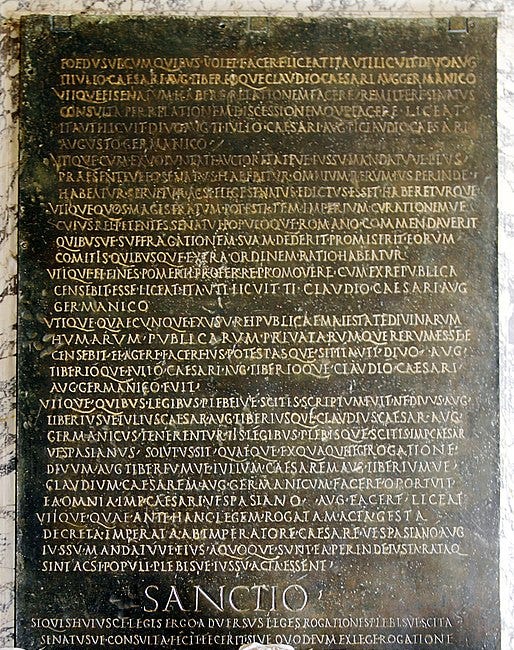We thought it might be a helpful moment to offer a reading list of pieces on executive power, presidential power in particular, and the broader administrative state, all from a classical legal perspective. The list is subdivided into three categories: theoretical groundings, history, and legal applications. Enjoy!
I. Theoretical Groundings
The foundation of executive power, in my view, is that the Many, seeking protection from exploitation by the Few, appeal to and empower the One. “When that the poor have cried, Caesar hath wept.”
For an old and quirky but deeply interesting book in the same neighborhood, see “Monarchy or Money Power” by R. McNair Wilson.
I’ve explored this key theme in two papers, both available here:
The Constitution of Hierarchy
A brief note to circulate my paper The Constitution of Hierarchy, just published in the Fudan Journal of the Humanities and Social Sciences. I presented an early version at a conference at Franciscan University in Steubenville in 2022, and presented a revised draft as a lecture at Fudan University in Shanghai last year. I’m grateful to have received mos…
You’ve heard of the “unitary executive”? How about the hyper-unitary executive! Two issues, frequently conflated, are the jurisdiction of the administrative state, on the one hand, and the legitimate fear of a “headless fourth branch” on the other. But the administrative state need not be headless; rather it is the body of the President, who is properly understood to have plenary power to remove all agents exercising executive power and to direct them in the performance of their duties.
The Head and Body of Leviathan
I propose a thought experiment: what might be the ultimate legal consequences of the constitutional conception of executive power, as the Supreme Court currently understands it? How far might the logic of that conception go?
Professor Jodi Short recently contributed an interesting overview of the “moral turn” in administrative law:
The Moral Turn in Administrative Law
The New Digest is delighted to feature this guest essay by Professor Jodi L. Short. Professor Short is the Mary Kay Kane Professor of Law at UC Law, San Francisco. The New Digest is a reader-supported publication. To receive new posts and support our work, consider becoming a free or paid subscriber.
II. History
In various spaces you will encounter odd claims about how the administrative state began with Woodrow Wilson, or FDR, or is a hideous creation of the Frankfurt School, or whatnot. In fact it is a feature of Western legal institutions time out of mind — the memory of man runneth not to the contrary. (And Catholic jurists above all should know why!)
The Origins of the (Western) Administrative State
When, where, how and why did the European and American administrative state(s) originate? If you have read certain judicial opinions, been to a Federalist Society talk, or even fallen so low as to read Heritage reports, you may have heard that the American administrative state originated with the sinister Woodrow Wilson and the progressives, around Worl…
The Mirror of Princes tradition thought deeply about executive power, the prudence of rulers, and ragion di stato:
“The Mirror of Princes”: A Reading List
The “Mirror of Princes,” advice to rulers on the virtues proper to rulers and (therefore) on prudent government, is an endlessly fascinating but slippery and ill-defined genre. Taken too expansively, as in this overly-inclusive list, it could encompass a large fraction of political and constitutional theory before the advent of methodological positivism…
III. Legal Applications
Our own Prof. Conor Casey on the legal presumptions that shape and constrain executive power:
What Pleases the Prince is Peace and Justice
A deeply impressive legacy of the classical legal tradition was the capacity of its leading jurists to convincingly reconcile two competing imperatives of good government: how to both empower and constrain the State so that it is ordered to the common good
An effort of mine on the same topic — legal presumptions, executive power, and the separation of powers:
The Nemo Iudex Principle and the Presumptions of the Law
In response to my recent post against the idea that the separation of powers is a necessary concomitant of the rule of law, one of our readers, Graham, offered an interesting suggestion: I ought to have discussed the venerable legal principle nemo iudex in sua causa
The literature is full of affirmative arguments for the separation of powers in general and the separation of functions within the executive in particular. What is the affirmative argument for their combination?
On the Combination of Powers in the Executive
The passage below is from the Liber Augustalis, also known as the Constitutions of Melfi, a law code promulgated by Frederick II Hohenstaufen for his Sicilian domains in 1231. Among other things, this extremely rich passage provides a terse and partly implicit argument for combining the power to make law and the power to enforce law in one set of hands …
But does the rule of law require the separation of powers? It does not.
The Rule of Law Without Separation of Powers
Among theorists of legal liberalism, a common assumption is that the rule of law, rightly understood, entails some version of the separation of powers — especially the separation of adjudication from the making or enforcement of law. The Stanford Encyclopedia
As Justice Kavanaugh recently urged, don’t over-read the overruling of Chevron:
Chevron By Any Other Name
Please, everyone, take a deep breath. Although the Supreme Court’s decision in Loper Bright Enterprises v. Raimondo has now overruled the Chevron decision on deference to agencies, there is much less to Loper Bright than meets the eye. Overheated praise and overheated condemnation of the decision both miss the mark. It is entirely possible that much or …
Canadian lawyer Kerry Sun with an instructive treatment of administrative discretion from a classical perspective:
Legal Form and Administrative Discretion
The New Digest is a reader-supported publication. To receive new posts and support my work, consider becoming a free or paid subscriber.
The Comstock Act, abortion, and administrative law from a natural-law perspective - complete with the highly significant (other) middle name of one of the authors:
Special bonus! An episode of the excellent Ius Commune podcast:















Quite a collection